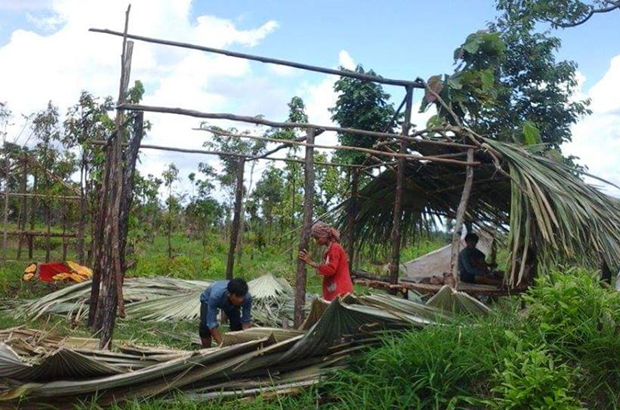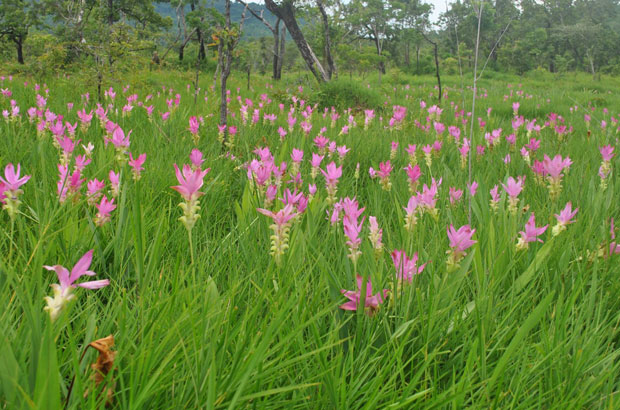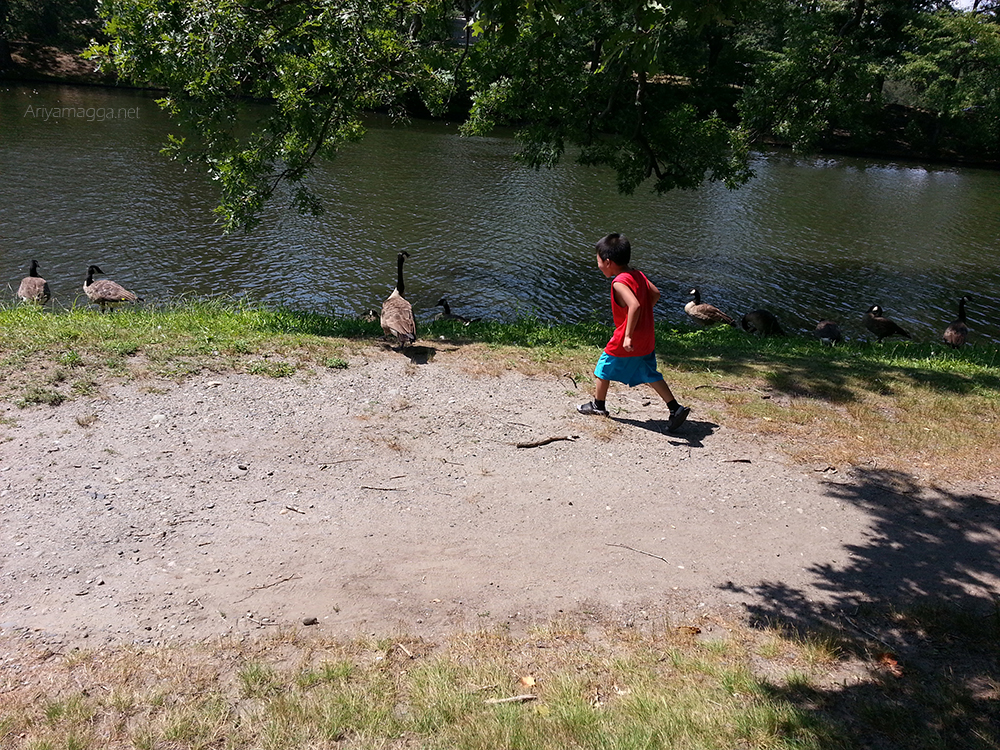The Story of Thera Mahakala
Verse 7: He who keeps his mind on pleasant objects, who is uncontrolled in his senses, immoderate in his food, and is lazy and lacking in energy, will certainly be overwhelmed by Mara,3 just as stormy winds uproot a weak tree.
Verse 8: He who keeps his mind on the impurities (of the body), who is well-controlled in his senses and is full of faith and energy, will certainly be not overwhelmed by Mara, just as stormy winds cannot shake a mountain of rock.
1. Maro/Mara: in this context kilesamara, the defilements hindering the realization of Nibbana.
2. saddham/saddha: According to the Commentary,
(a) unwavering (unshakable) faith in the Buddha, the Dhamma (the Doctrine) and the Samgha (the Buddhist Religious Order) and
(b) faith or belief in kamma (action) and its results.
3. Refer to 1.
While residing in the neighbourhood of the town of Setabya, the Buddha uttered Verses (7) and (8) of this book, with reference to Mahakala and his brother Culakala. Mahakala and Culakala were two merchant brothers from the town of Setabya. While travelling about with their merchandise on one occasion, they had a chance to listen to a religious discourse given by the Buddha. After hearing the discourse Mahakala asked the Buddha for admission to the Order of the bhikkhus. Culakala also joined the Order but with the intention of coming out of the Order and to bring out his brother along with him.
Mahakala was serious in his ascetic practice at the cemetery (Sosanika dhutinga) and diligently meditated on decay and impermanence. He finally gained Insight and attained arahatship.
Later, the Buddha and his disciples, including the brothers, happened to be staying in the forest of Simsapa, near Setabya. While staying there, the former wives of Culakala invited the Buddha and his disciples to their house. Culakala himself went ahead to prepare seating arrangements for the Buddha and his disciples. Once there, the former wives of Culakala made him change into lay clothes.
The next day, the wives of Mahakala invited the Buddha and his disciples to their house hoping to do the same with Mahakala as the wives of Culakala had done to Culakala. After the meal they requested the Buddha to let Mahakala remain to “express appreciation” (anumodana). So the Buddha and the other disciples left.
Arriving at the village gate the bhikkhus expressed their dissatisfaction and apprehension. They were dissatisfied because Mahakala was permitted to stay behind and they were afraid that, like Culakala, his brother, Mahakala, too, would be made to leave the Order by his former wives. To this, the Buddha replied that the two brothers were not alike. Culakala indulged in sensual pleasures and was lazy and weak; he was just like a weak tree. Mahakala, on the other hand, was diligent, steadfast and strong in his faith of the Buddha, the Dhamma and the Samgha; he was like a mountain of rock.
Then the Buddha spoke in verse as follows:
Verse 7: He who keeps his mind on pleasant objects, who is uncontrolled in his senses, immoderate in his food, and is lazy and lacking in energy, will certainly be overwhelmed by Mara, just as stormy winds uproot a weak tree.
Verse 8: He who keeps his mind on the impurities (of the body), who is well-controlled in his senses and is full of faith and energy, will certainly be not overwhelmed by Mara, just as stormy winds cannot shake a mountain of rock.
Meanwhile, the former wives of Mahakala surrounded him and tried to remove his yellow robes. The thera, sensing their attitude, stood up and rising up into the air by his supernormal powers passed through the roof of the house into the sky. He landed at the feet of the Buddha at the very moment the Master was coming to the end of his utterance of the above two stanzas. At the same time, all the bhikkhus assembled there were established in Sotapatti Fruition.
Dhammapada Verses 7 and 8
Mahakalatthera Vatthu
Subhanupassim viharantam
indriyesu asamvutam
bhojanamhi camattannum
kusitam hinaviriyam
tam ve pasahati Maro1
vato rukkhamva dubbalam.
Asubhanupassim viharantam
indriyesu susamvutam
bhojanamhi ca mattannum
saddham2 araddhaviriyam
tam ve nappasahati Maro
vato selamva pabbatam.
Source: Tipitaka


















